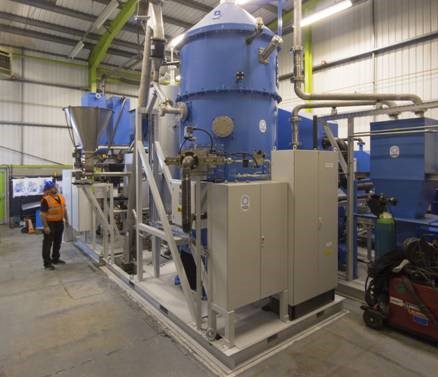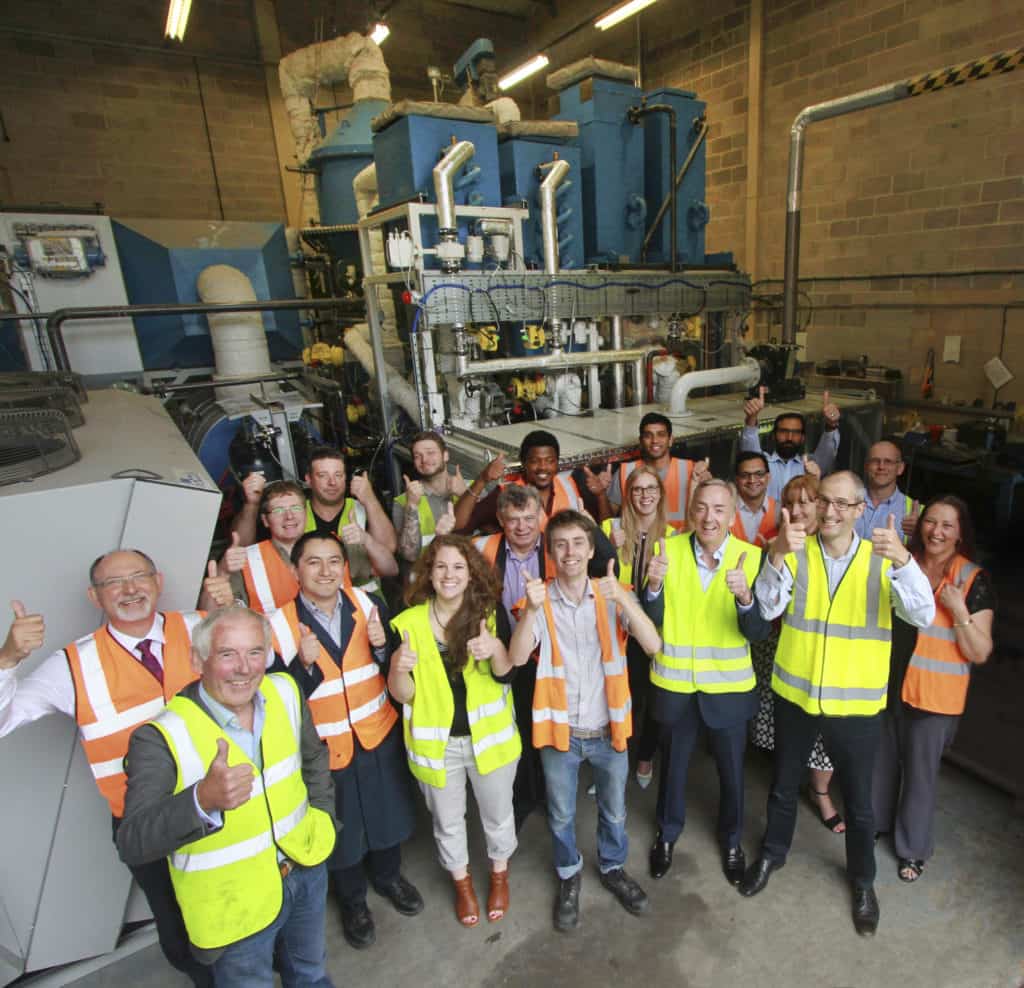Swindon borough council is to pilot an innovative piece of technology that promises to turn mixed non-recyclable rigid plastic waste into a sulphur fuel replacement product.
The council is working with the Swindon-based firm Recycling Technologies, the developer of the RT7000, to install the machinery which turns non-recyclable mixed plastic waste into ‘Plaxx’, which the developer describes as a ‘clean hydrocarbon product’.

The RT7000 unit which produces Plaxx from mixed rigid plastic
The RT7000 machine, which was originally developed as part of a project by the University of Warwick, is capable of processing up to 7,000 tonnes of mixed plastic waste – material found in items such as plant pots or toys – per year, producing 5,200 tonnes of Plaxx.
The system involves shredding material, which is injected into a fluidised bed where polymers are broken down by pyrolysis to form a gas. The gas is then filtered, cooled and condensed to form the Plaxx material.
Commercial
Recycling Technologies announced that it had begun commercial-scale production at a facility in Swindon last week and the company is also working with environmental consultancy firm Ricardo Energy & Environment to characterise the use of the fuel as a substitute for fossil based heavy fuel oil and diesel in applications such as power generation and marine propulsion.
According to Recycling Technologies, Plaxx can be used as a petrochemical feedstock, a manufacturing commodity such as paraffin wax, or as a clean and more sustainable fuel substitute for fossil-based HFO, which also displaces imported oil.
Recycling Technologies has funded its R&D projects through various government funding organisations, including the Knowledge Transfer Partnerships (KTP) and the Energy Catalyst grant with the University of West England (UWE), funded by Innovate UK.
There has been additional support from other government funding organisations, such as the Department of Energy and Climate Change (DECC) and the Department for Business Innovation and Skills.
Capital
Investment has also come from investment firm EcoMachines Ventures, which originally provided seed capital for Recycling Technologies in May 2014 – before selling its share to a private investor in April.
Adrian Griffiths, chief executive of Recycling Technologies, said: “The waste of plastic, after what is often a very short lifespan, is highly damaging. Environmentally, it is distressing, but commercially it is also shocking, since 280 million tonnes of polymer worth over £300 billion is wasted each year. We are thrilled then, that the commercial demonstrator of the machine we want to mass produce is operational and viable.
“This is not only great news for RT but also for the global environment. We are very keen to now raise the investment and complete the first RT7000 in order to bring this exciting process to market.”

Recycling Technologies’ team marks the successful running of the machine
On the council’s use of the RT7000, Mr Griffiths added: “We are really appreciative of the support shown by the council and now we can’t wait to get on Swindon’s recycling site and show the world what can be achieved when universities and specialists collaborate, as has happened in this project, to solve a major global problem.”
Dr Adam Read, Ricardo’s practice director for resource efficiency & waste, said: “Finding solutions to landfill diversion is a critical challenge facing modern society. The ability to generate fuels and recover plastics is key to the sustainable management of the world’s resources. As such, assessing the viability of the process during the pilot phase is an exciting and potentially ground-breaking step for Ricardo and the team from Recycling Technologies.”
Related Links
The post Swindon council to pilot plastics-to-fuel technology appeared first on letsrecycle.com.